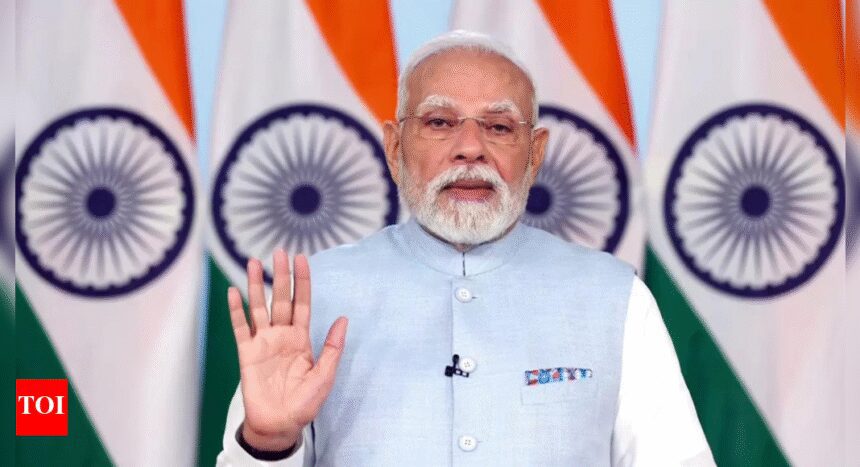NEW DELHI: On the eve of the month-long festival season beginning with Navratri, Prime Minister Narendra Modi emphasized the upcoming “Bachat Utsav” (savings festival) set to launch on Monday, which coincides with the rollout of the next generation of Goods and Services Tax (GST) reforms. These reforms aim to reduce prices, simplify compliance, and drive economic growth in India.
In a special address ahead of the GST implementation, Modi urged citizens to support local products and move away from reliance on foreign goods. He stated, “Tomorrow, on the first day of Navratri, at dawn, the next generation of GST reforms will be implemented. Your savings will increase, and purchasing will be easier. With lower GST rates, it will be easier for citizens to fulfill their dreams.”
The Prime Minister highlighted that various groups—such as the poor, middle class, farmers, and shop owners—will benefit from the changes. He noted that many everyday items will become more affordable, as items like food, medicines, and personal care products will either be tax-free or taxed at just 5%. Modi revealed that 99% of products previously taxed at 12% are now included in the new 5% tax category and emphasized that shopkeepers are working to ensure consumers benefit from these reductions.
Modi stated, “When combined with income tax relief for individuals earning up to ₹12 lakh annually, the GST rate cuts will yield savings exceeding ₹2.5 lakh crore for the people of India.” He reiterated his belief that this savings initiative justifies the term ‘Bachat Utsav’.
The Prime Minister mentioned that fulfilling personal aspirations—such as buying a house, television, or vehicle—would now be more affordable, along with lower costs for travel and accommodations due to reduced GST on hotel services. He also stressed the responsibilities of state governments and merchants to ensure these tax benefits reach the consumers effectively.
In light of global trade tensions, Modi invoked the historical significance of the ‘swadeshi’ movement, which he believes can empower India’s path to prosperity. He noted that many foreign products have become commonplace in daily life, often without consumers being aware of their origins. Modi called for households to symbolize ‘swadeshi’ and for shops to showcase indigenous goods.
He challenged citizens to commit to purchasing and selling domestic products, advocating the phrases “I buy swadeshi” and “I sell swadeshi” as intrinsic to every Indian’s mindset. Modi asserted that this collective effort would facilitate India’s development and prosperity.
The Prime Minister also urged state governments to bolster local manufacturing and create a favorable investment climate to support the initiatives of ‘Aatmanirbhar Bharat’ (self-reliant India) and ‘swadeshi’. He concluded by reiterating that collaborative efforts between the central and state governments would help realize the vision of a self-sufficient and developed nation.










